Meet the Cambodian dads raising the next generation of female-leaders
Round-the-clock contract work and full-time farm management leaves many parents in Cambodia unable to kick back and play with their kids. So local communities within Siem Reap have established Father Groups to encourage dads to take an active role in early childcare - this is how they're shaking up new paradigms of parenthood
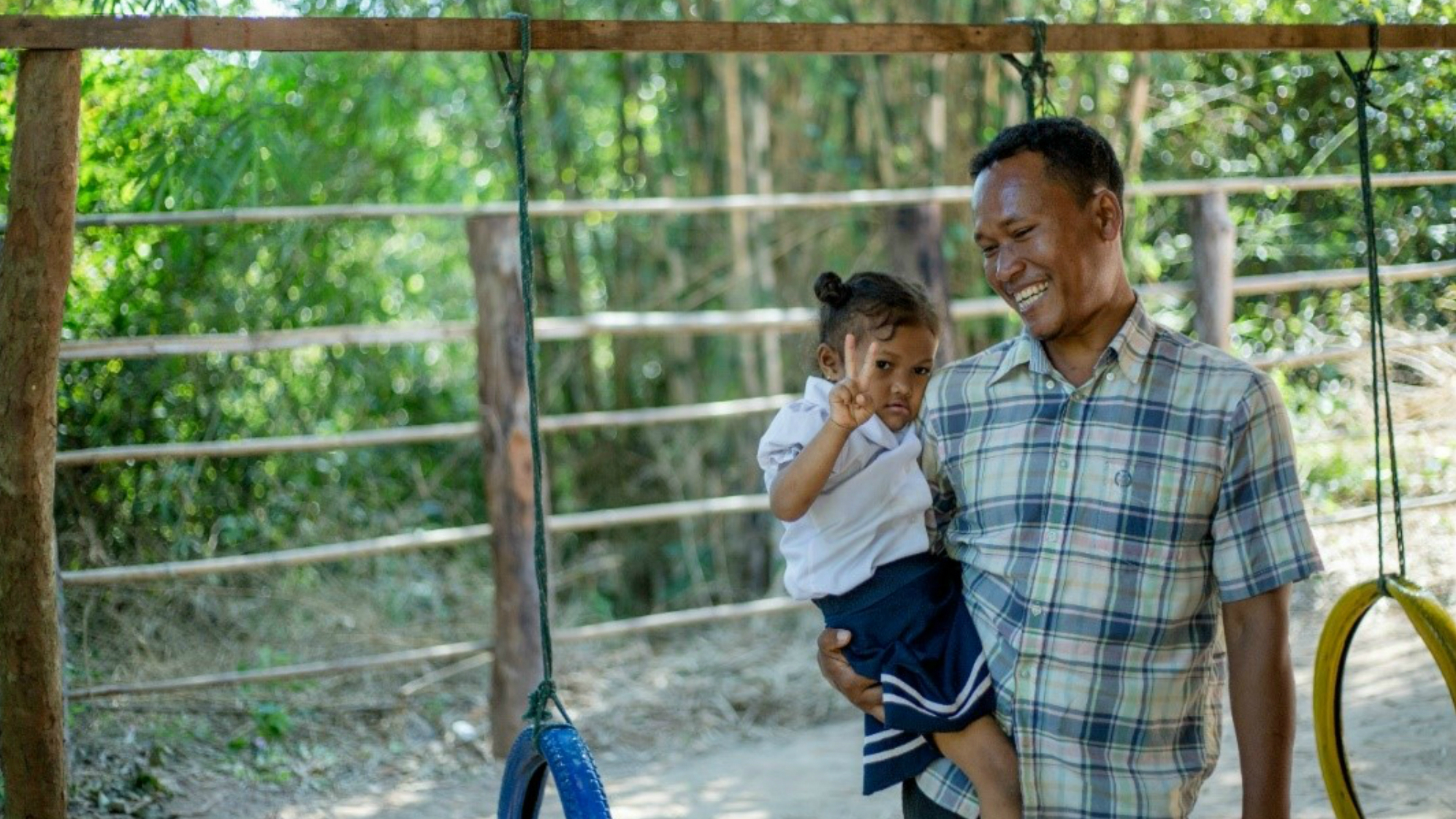

Round-the-clock contract work and full-time farm management leaves many parents in Cambodia unable to kick back and play with their kids. So local communities within Siem Reap have established Father Groups to encourage dads to take an active role in early childcare - this is how they're shaking up new paradigms of parenthood
For most of us, playtime is interchangeable with our fondest memories of childhood. And standing on the sidelines of these memories are often our parents - reading bedtime stories in playful voices, or cheering on as they're forced to sit through a clumsy made-up dance routine for the sixteenth time - all thoughtful actions that helped lead us down the path of learning and development. But in the developing world, poverty and time-pressures on working parents mean that play can quickly become a rare luxury – or not considered at all.
In Cambodia, 80% of workers are employed in informal contract work, with many managing their own small hold farms for food, meaning parents are unable to dedicate their time to play. In fact, national statistics show that only 5% of Cambodian children receive early stimulation from parents and caregivers, and are more likely to be asked to help out on the farm than engage in play time.
And with only 52% of children in Siem Reap having access to preschool education between 2017-2018, the integral role parents play in allocating time for play is clear. So one initiative is hoping to change the paradigm - by getting dads on board.
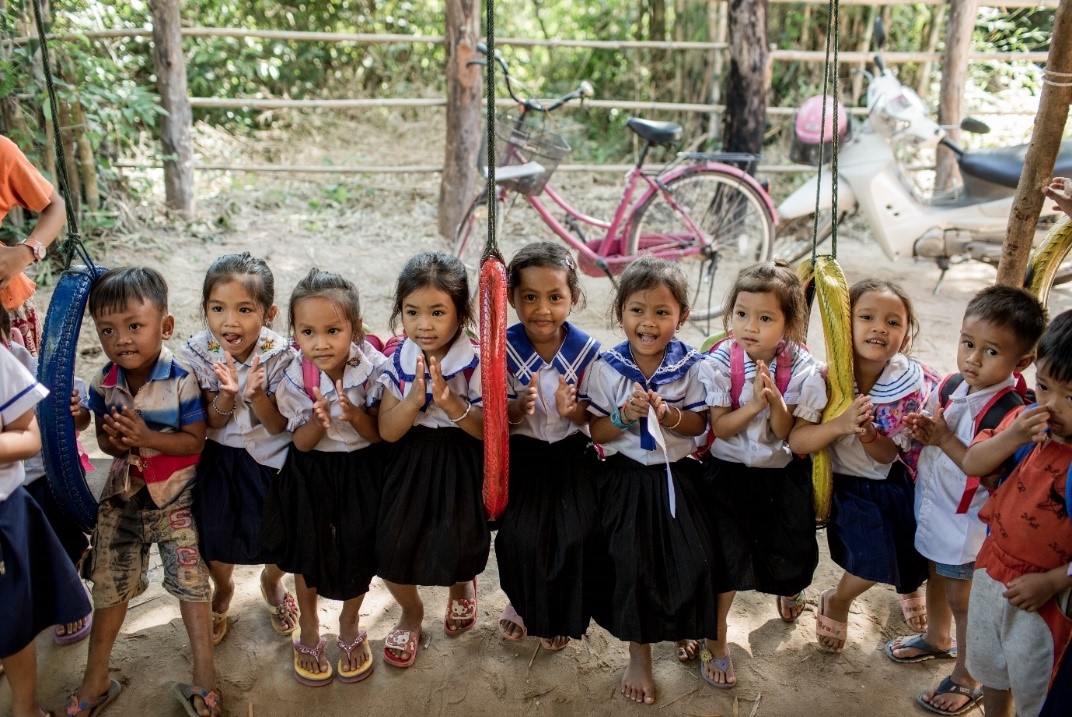
With support from Plan International, local communities within Siem Reap have established eight Father Groups, to encourage dads to take an active role and responsibility in early childhood care.
These group are also helping to transform gender norms, by giving dads a more active role when it comes to household chores. In Cambodia, where childrearing is traditionally the responsibility of women, girls are more likely to be expected to drop out of school to help with housework and raise younger siblings. So by sharing responsibility of chores, dads be helping to keep their daughters in school for longer.
For Koerun, a labourer and dad of three, joining his local Father Group has helped him appreciate the importance of being a hands-on dad.
Marie Claire Newsletter
Celebrity news, beauty, fashion advice, and fascinating features, delivered straight to your inbox!
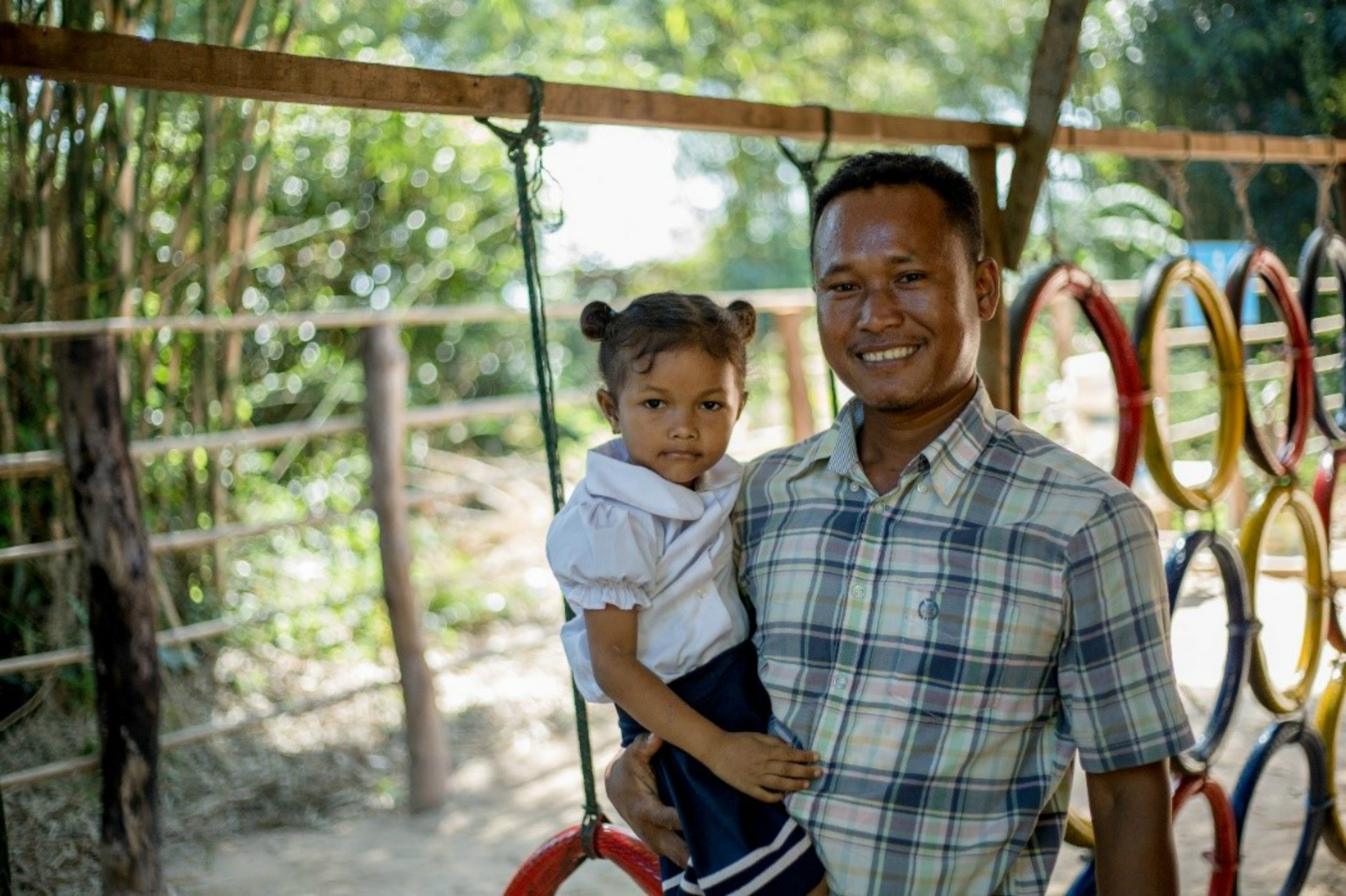
‘Using the learnings from the Father Group has brought me and my children closer together. I’ll take them to school and feed them. When I have free time in the evenings, I'll ask about their day at school and ask them to sing the songs they've learned to me. Or we'll paint and write together. I've realised how important it is to not only play with them, but to get them thinking and using their brains as well. Before, they were very close to their mother, but now they all want to spend time with me!’
‘I’m also doing more to share the housework with my wife and she’s a lot happier. Before, she was very tired from taking care of the children - cooking for them and dressing them, as well as raising the pigs that we keep. Sharing the chores has made for a happier home.’
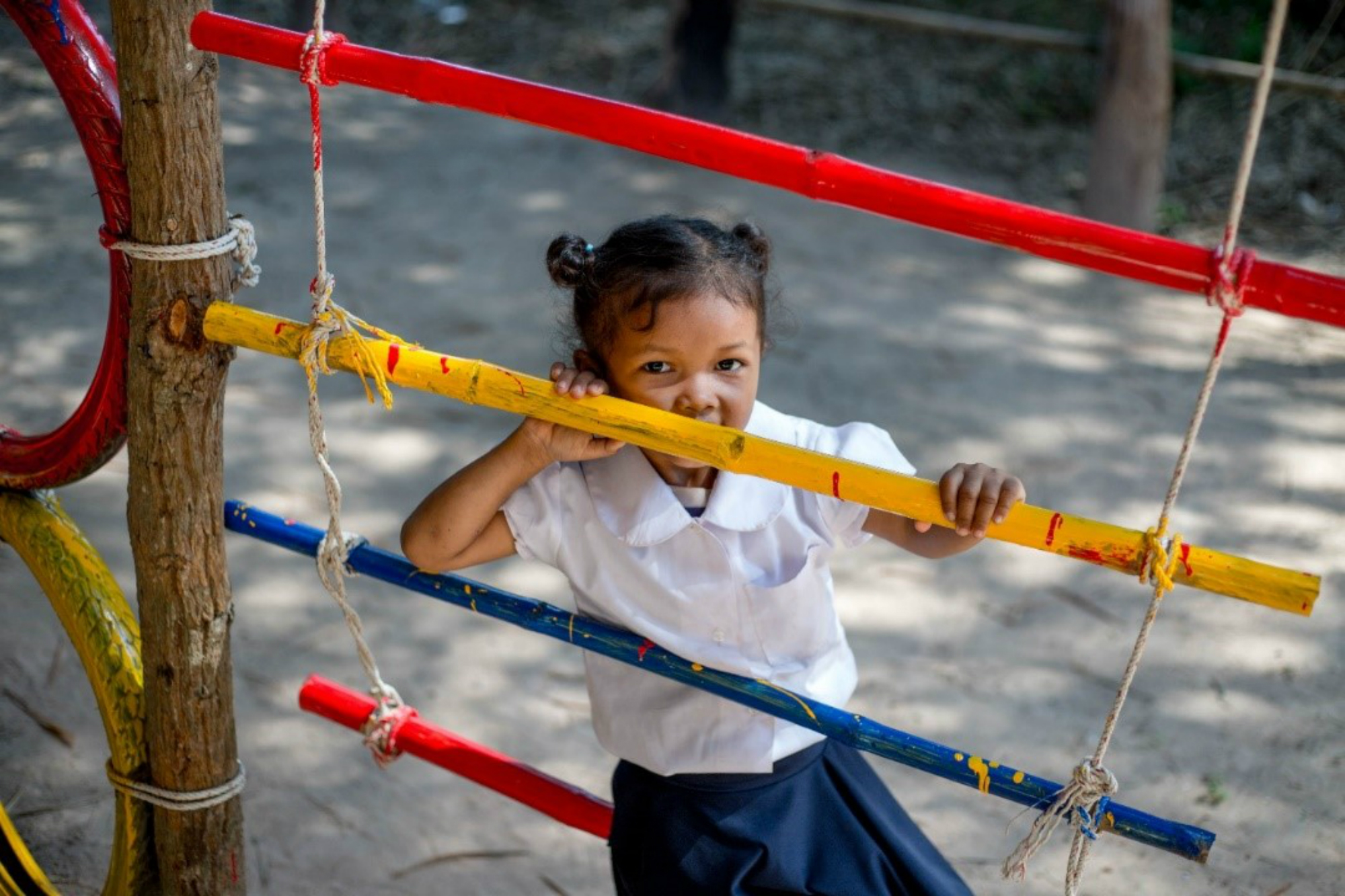
'I used to believe that the role of the father was just to provide outside the home. I didn't see it as a caregiving role', says Souern, a farmer, dad of three and leader of his local Father Group. With his wife working in a sewing factory in another district, he is now the main caregiver in his family.
Souern says that being part of the group has given him a greater appreciation of the role that dads can play in family life: ‘Now I know that it’s the job of a husband and wife to support the children together. I’m committed to spreading and sharing that message in my community.'
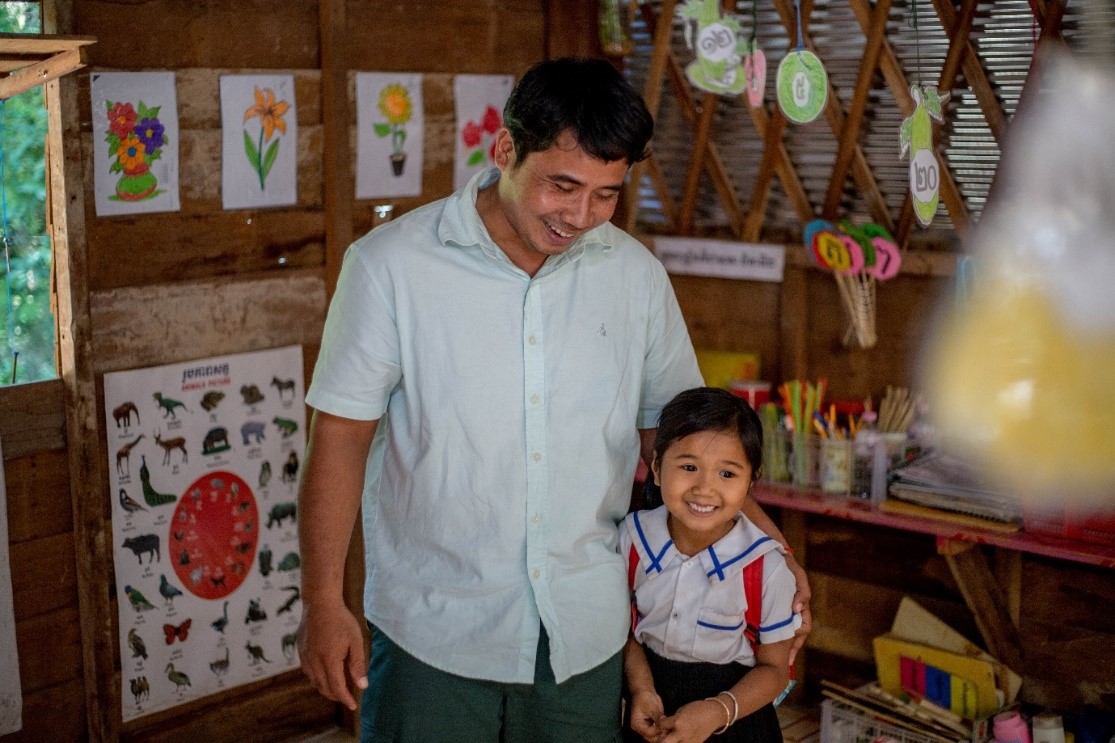
'There’s eighteen of us in our Father Group who meet once a month, to talk about our experiences of fatherhood, and how we’ve learned to play with the children and help them learn.'
‘Because my wife works in another district, I make the children breakfast in the morning, help to dress them and wash their clothes. When my wife’s work friend found out, she said, ‘Is this real, your husband really does all this?’ and my wife assured her it was true, not just a rumour!’
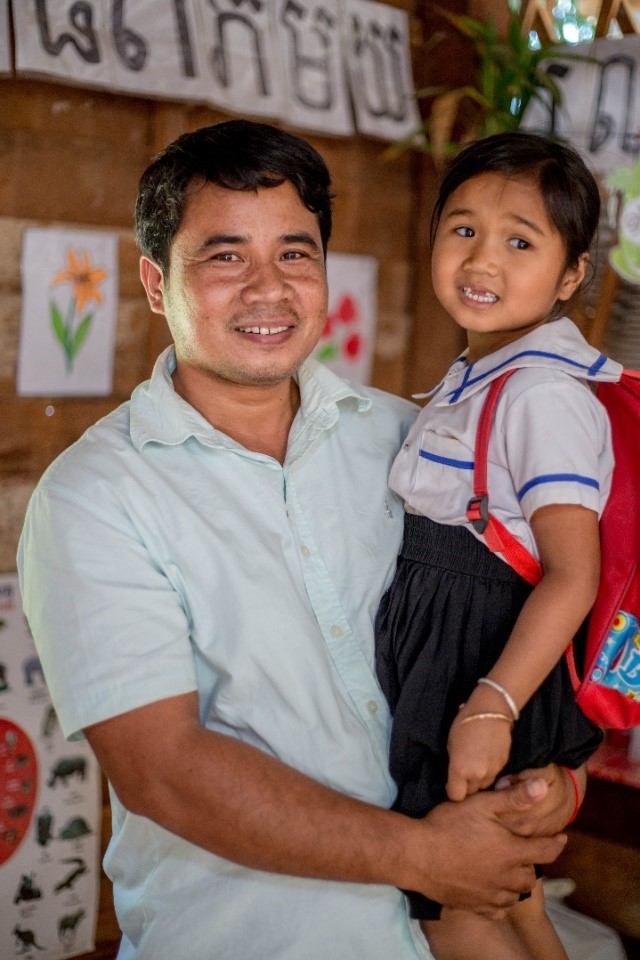
‘I’ve also made some toys for my children to play with and I ask them questions throughout the day to get them thinking – for example, if we’re eating mango I’ll say, how does it taste, describe the colour to me. It’s definitely brought us closer together, and helped my children do better in school, too. If dads don’t take the time to spend with their children, it’s hard for them to have a good relationship.’
Niamh McCollum is Features Assistant at Marie Claire UK, and specialises in entertainment, female empowerment, mental health, social development and careers. Tackling both news and features, she's covered everything from the rise of feminist audio porn platforms to the latest campaigns protecting human rights.
Niamh has also contributed to our Women Who Win series by interviewing ridiculously inspiring females, including forensic scientist Ruth Morgan, Labour MP Stella Creasy and ITV’s former Home Affairs Editor Jennifer Nadel.
Niamh studied Law in Trinity College Dublin. It was after enrolling in a Law & Literature class on her year abroad in Toronto that her love of writing was reignited. In no particular order, her big likes are Caleb Followill, hoops, red wine, sea swimming, shakshuka and long train journeys.
-
 I get lash lifts regularly—here’s how I combat 'lash dehydration’, as per expert advice
I get lash lifts regularly—here’s how I combat 'lash dehydration’, as per expert adviceHow I've got my flutter back on track...
By Rebecca Fearn
-
 I tried Charlotte Tilbury’s bridal make-up service for my wedding, and *loved* it—here’s everything you need to know
I tried Charlotte Tilbury’s bridal make-up service for my wedding, and *loved* it—here’s everything you need to knowOne of my favourite beauty experiences to date
By Tori Crowther
-
 Prince Harry's "proud" words about wife Meghan Markle are going viral
Prince Harry's "proud" words about wife Meghan Markle are going viralBy Jenny Proudfoot